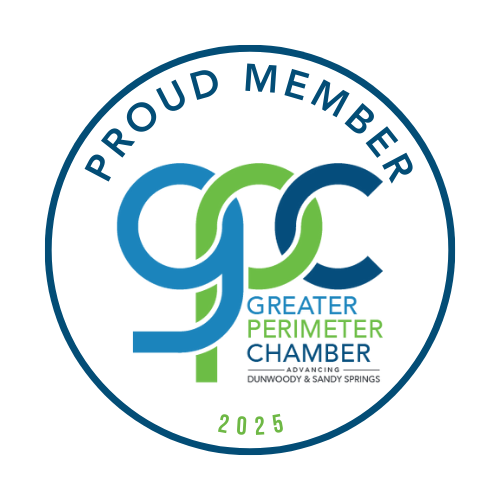- Who We Help
Loved Ones & Family
Treatment for Loved Ones & Family
There’s a reason addiction is often described as a family disease. Along with the genetic component that can be a contributor, it’s a disease that affects everyone who loves the person with the addiction. When you love someone with an addiction, you may struggle with knowing what to do or say. You could also experience your own mental health challenges because of a family member’s addiction.

Discover our Program
Addiction can create conflict among family members, divide families, affect children, and lead to the end of marriages. When you have a loved one who’s struggling with addiction, along with learning how to help them best, you also have to think about how to take care of yourself.
As part of our treatment programs at Atlanta Recovery Place, our team can also help you organize an intervention, facilitate family therapy, and refer you to programs that could be helpful, such as a 12-step family program.
Contact our Georgia recovery center today to learn more about our outpatient drug rehab in Atlanta.
Your Recovery is Our Priority
Atlanta Recovery Place has caring representatives available 24/7 to help you or your loved one when dealing with substance abuse. Request a 100% confidential callback now to start your journey.
Understanding The Disease of Addiction
As a family member, learning more about the disease of addiction can help you understand that your loved one is dealing with something out of their control. The American Society of Addiction Medicine defines addiction as a chronic, primary disease of the brain. It affects areas of the brain controlling motivation, memory, and reward, among others.
There’s a neurobiological component of addiction. Addiction essentially takes over the function of a person’s brain reward system and impacts how the different parts of the brain communicate with one another.
The symptoms of a substance use disorder can include:
- Uncontrollable cravings to use a substance
- Continuing to use a substance even though it causes known problems
- Unsuccessful attempts to cut back on the use or stop using a substance
- Using more of the substance than intended
- Reducing other important activities because of substance use
- Withdrawal symptoms if cutting back or not using a substance
When looking for addiction treatment for loved ones, it’s important to consider an evidence-based program that treats addiction as the disease that it is. With that in mind, when someone is looking for treatment for loved ones, they should also find a program that treats every person as an individual. No two people or their symptoms are exactly the same, nor should their treatment plans be.
Atlanta Recovery Place offers both evidence-based and tailored treatment, and we can work with you if you’re looking for a family addiction treatment that will integrate you as part of the approach and plan.
Addiction Treatment Tailored to Your Needs
Atlanta Recovery Place provides comprehensive care for you or your loved one and brings an end to the family’s suffering from substance abuse, behavioral problems, and the underlying feelings of hopelessness and despair.
Helping a Loved One
When you’re watching someone you love and care about struggle with addiction, it can feel frustrating and overwhelming. A person who has an addiction will often appear to turn into a stranger. Addiction will fuel them to do things they wouldn’t have otherwise, like stealing, lying, cheating, or even becoming violent. As much as you want to help them, you can’t without professional help. Contact Atlanta Recovery Place if you’d like to learn more about drug rehab for loved ones and explore how to facilitate an intervention.
An intervention can be a way to motivate your loved one to seek treatment for drug or alcohol addiction. Our team at Atlanta Recovery Place can work with you to identify a family rehab program that will work for your needs and also to facilitate an intervention.
Oftentimes people who are dealing with addiction are in denial about the existence of a problem or its severity, and as a result, they may not be willing to seek treatment. It can be hard for them to realize the negative effects of their substance use on themselves, let alone the people around them.
When facilitating an intervention, it’s a structured way to help your loved one make changes, and it can motivate them to get help. Interventions should be carefully planned ahead of time, with the ultimate goal of encouraging treatment for loved ones. It’s best to work with a licensed drug and alcohol counselor or interventionist to plan an intervention. You may also involve other family members, friends, or people who care about your loved one.
The initial steps to planning an intervention to encourage addiction treatment for loved ones begin by gathering the participants. You will work with an addiction treatment professional to learn more about the person’s drug or alcohol use and the impacts it has on their life. Then, the person planning the intervention will start to have more of an understanding of the severity of the addiction. Next, the person planning the intervention will get all the involved parties together, with the exception of the person with the addiction.
They’ll go over what to expect during the process. During the actual intervention, it’s essential to be prepared to state your concerns in a non-confrontational, non-defensive, and non-aggressive way.
During an intervention, while there are different specific approaches, you will usually provide your loved one with specific examples of their harmful or destructive behaviors, highlighting the impact on family and friends. There should be a pre-arranged treatment plan with very specific goals and guidelines. Everyone participating in the intervention will state the steps they’re planning to take if the loved one refuses help.
During a drug intervention, along with connecting people with addictions with treatment programs, it can help begin to repair relationships that were damaged and open up communication.
Real Experiences, Real Results
Amazing Resource
Feels More Like Home
ARP is an amazing program who’s staff really care about their people! It feels more like a home then a treatment center. And the connections and people I’ve met there are connections I’ll have for the rest of my life.
"Feels More Like Home" Dustin S.Love this place and what they do for the community. Such a positive aspect of the recovery world at large. Thank you for doing all that you do, and your continued support to those in need.
"Love This Place" Paige D.Love This Place
Working with a diverse network of partners
We Work With Most Major Insurance Providers
Most major health insurance providers with out-of-network benefits will help cover the cost of our Atlanta treatment program. Call us or email us to find out your coverage options when seeking treatment for drug & alcohol abuse.





Taking Care of Yourself
You can’t discount the enormous role your loved one’s addiction has on you. Often, when you’re looking for addiction treatment for loved ones, the programs will include family members in group therapy. You can start to rebuild a sense of trust in the person you love and also learn more about the underlying elements of their addiction.
As well as participating in the treatment program, if possible, you should also take care of yourself in other ways because loving someone with a substance use disorder can take a tremendous toll on you mentally and physically.
Whether your loved one accepts help or not, you should consider working with a therapist on your own. Find things to do that make you feel good, and remember that you have your own identity too.
There are programs like Al-Anon and Nar-Anon that are 12-step support groups for the loved ones of people struggling with addiction.
Reach out to Atlanta Recovery Place to learn more about treatment for loved ones and a family rehab program. We can connect you with a variety of resources to help your loved one and help yourself.
Recover Now.
Atlanta Recovery Place has caring representatives available 24/7 to help you or your loved one when dealing with substance abuse. Request a 100% confidential callback now to start your journey.
What We Offer
Quick Links
Our Contact
- 1-866-433-9220
- info@atlantarecoveryplace.com
-
1742 Mt Vernon Rd #100
Dunwoody, GA 30338 -
Monday – Friday: 8 am – 6 pm
Saturday: 8 am – 3 pm (as needed)
© 2025 Atlanta Recovery Place All rights reserved.

Verify Your Insurance & Get Access To Treatment
You can get insurance coverage in as little as 5 minutes!






ARP is a really amazing resource in getting sober. I’ve had many close people in my life go through ARP and thrive after they finish the program there. The staff there is very friendly and goes above and beyond in helping their clients.
" Amazing Resource" Gracey O.